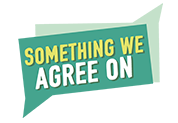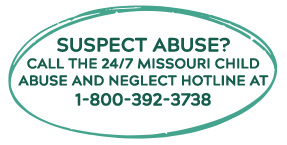Protecting children from abuse is an adult responsibility. When abuse is suspected, discovered or disclosed, call the Child Abuse and Neglect Hotline at (800-392-3738). If you would like additional information or support about making the call, including the type of information that will be asked, what your rights are and a sample hotline call, visit Essential4kids.org.
It is normal for adults to feel at a loss about what to do or say. But, learning how to respond ahead of time can better prepare you for that moment.
Responding in the moment:
Communicate the following calmly and supportively:
Afterward, it’s time to make the call:
Protecting children from any abuse including Sexual Abuse, is an adult’s responsibility. After receiving this information, call the Child Abuse and Neglect Hotline at (800-392-3738). If you would like additional information or support about making the call, including the type of information that will be asked, what your rights are and a sample hotline call, visit Essential4kids.org.
child Advocacy Centers (CACS)
Child Advocacy Centers across Missouri can help you and your child navigate this difficult time. Learn more and find a Child Advocacy Center near you through Missouri Kids First, the state network of CACs. Child Advocacy Centers (CACs) are safe, child-focused, trauma-informed environments that allow children to tell their story only ONE TIME to a trained interviewer who knows the right questions to ask in ways that do not further or retraumatize. Then, a team that includes medical professionals, law enforcement, mental health, prosecution, child protective services, victim advocacy, and other professionals make decisions together about how to help the child based on the interview. CACs offer therapy and medical exams, plus courtroom preparation, victim advocacy, case management, and other services. This is called the multidisciplinary team (MDT) response and is a core part of the work of CACs.
please note: Most services provided by a child advocacy center require a referral from investigative partners , but we encourage you to locate and connect with your local child advocacy center to learn more about what they do and ways to support them.





